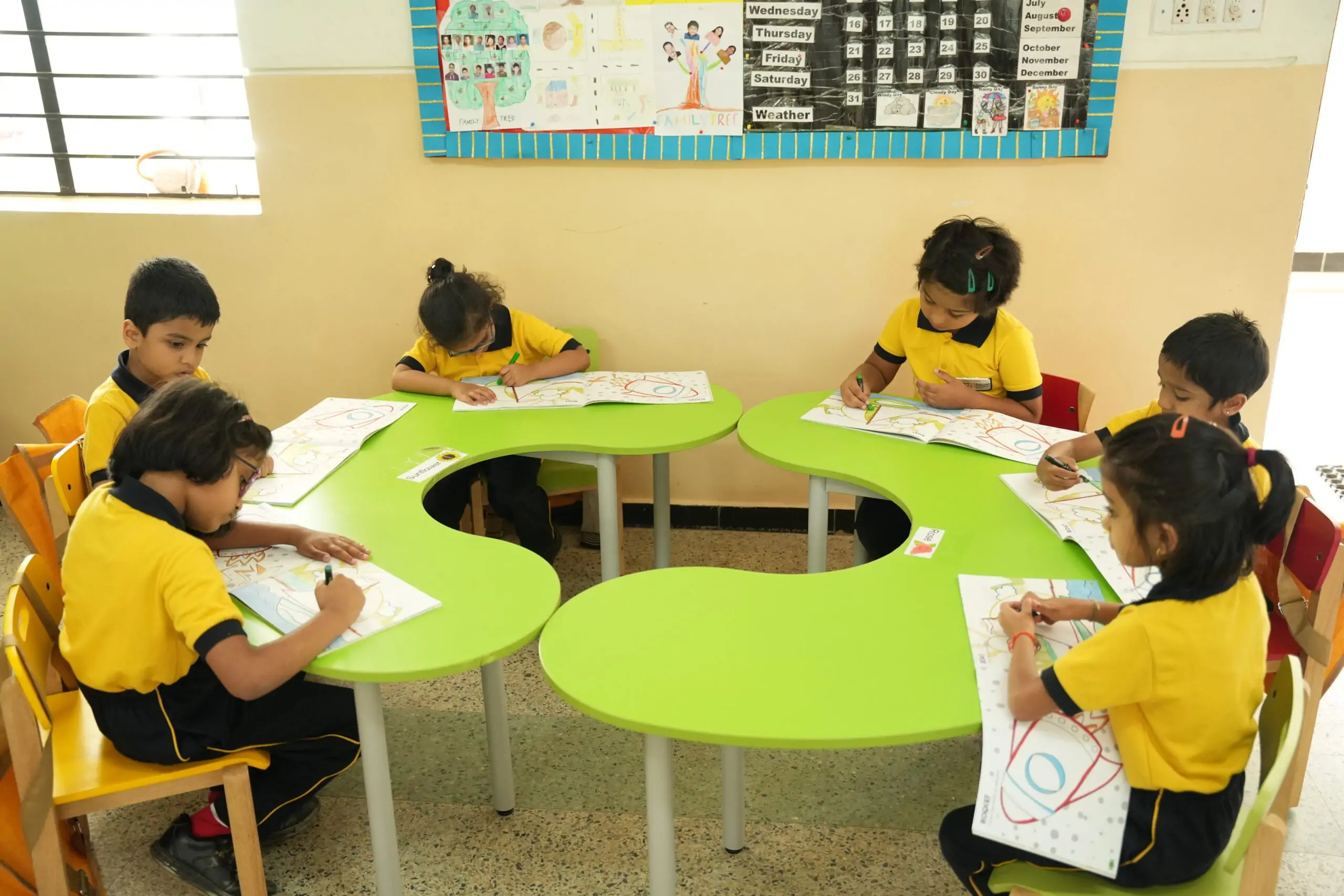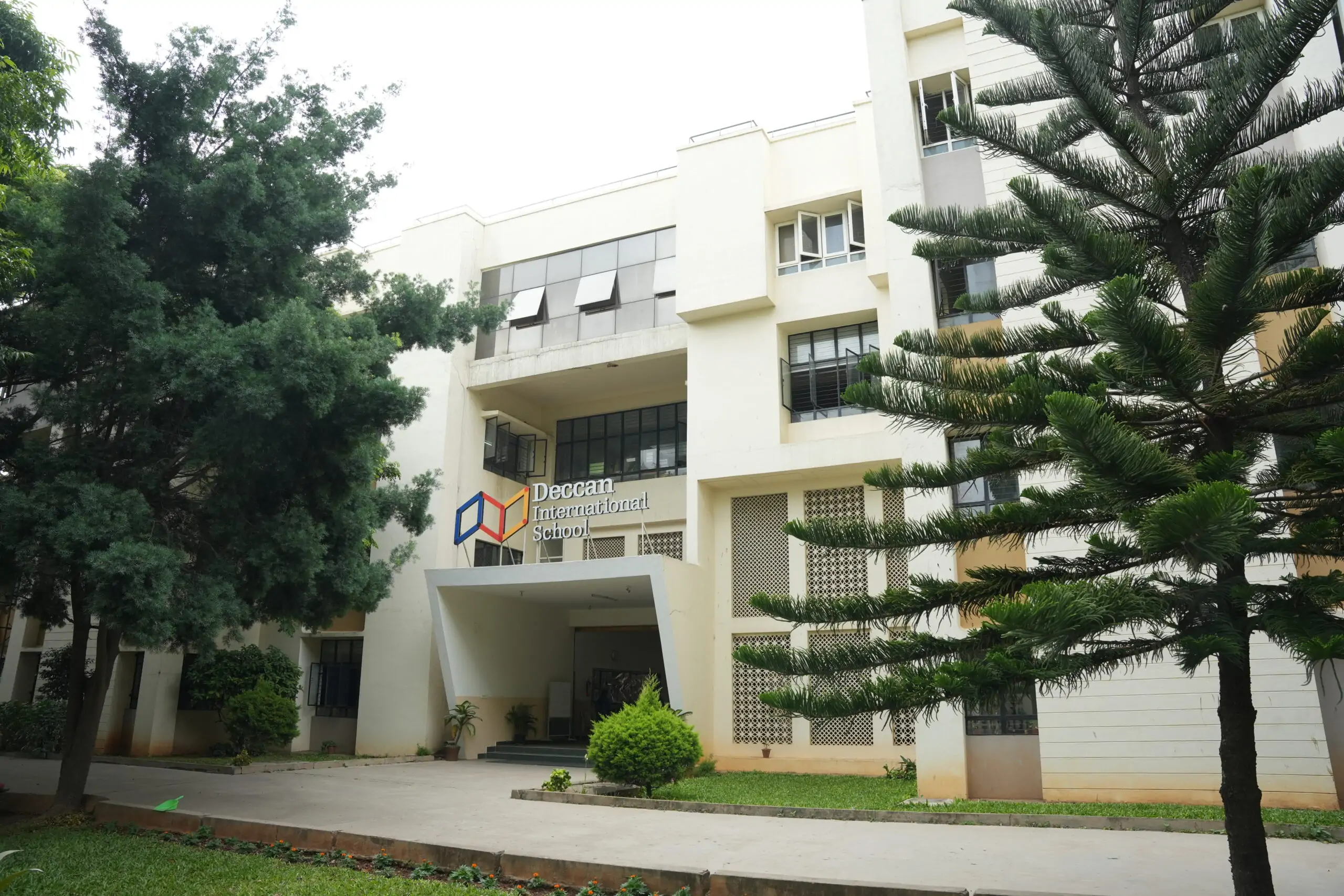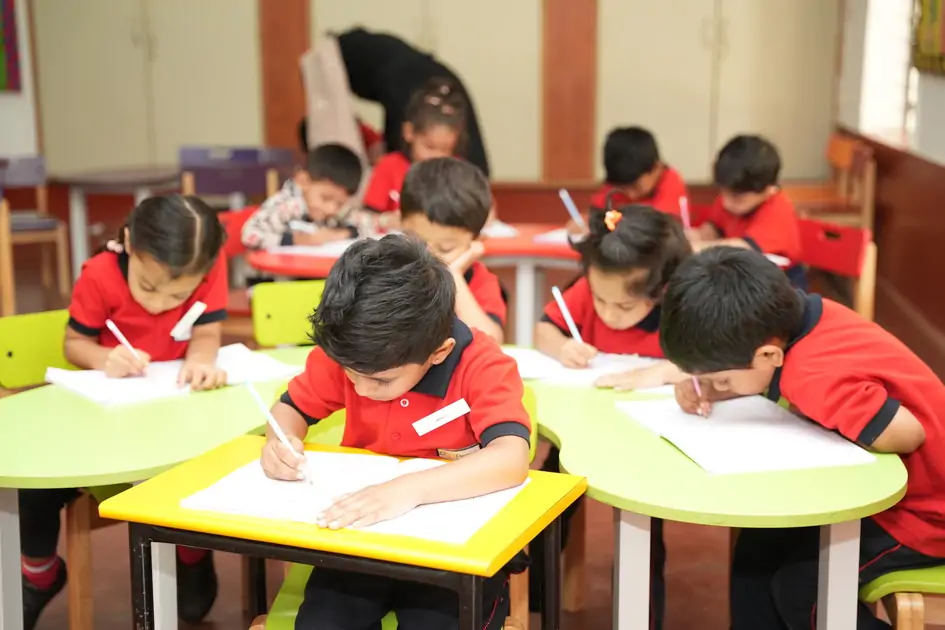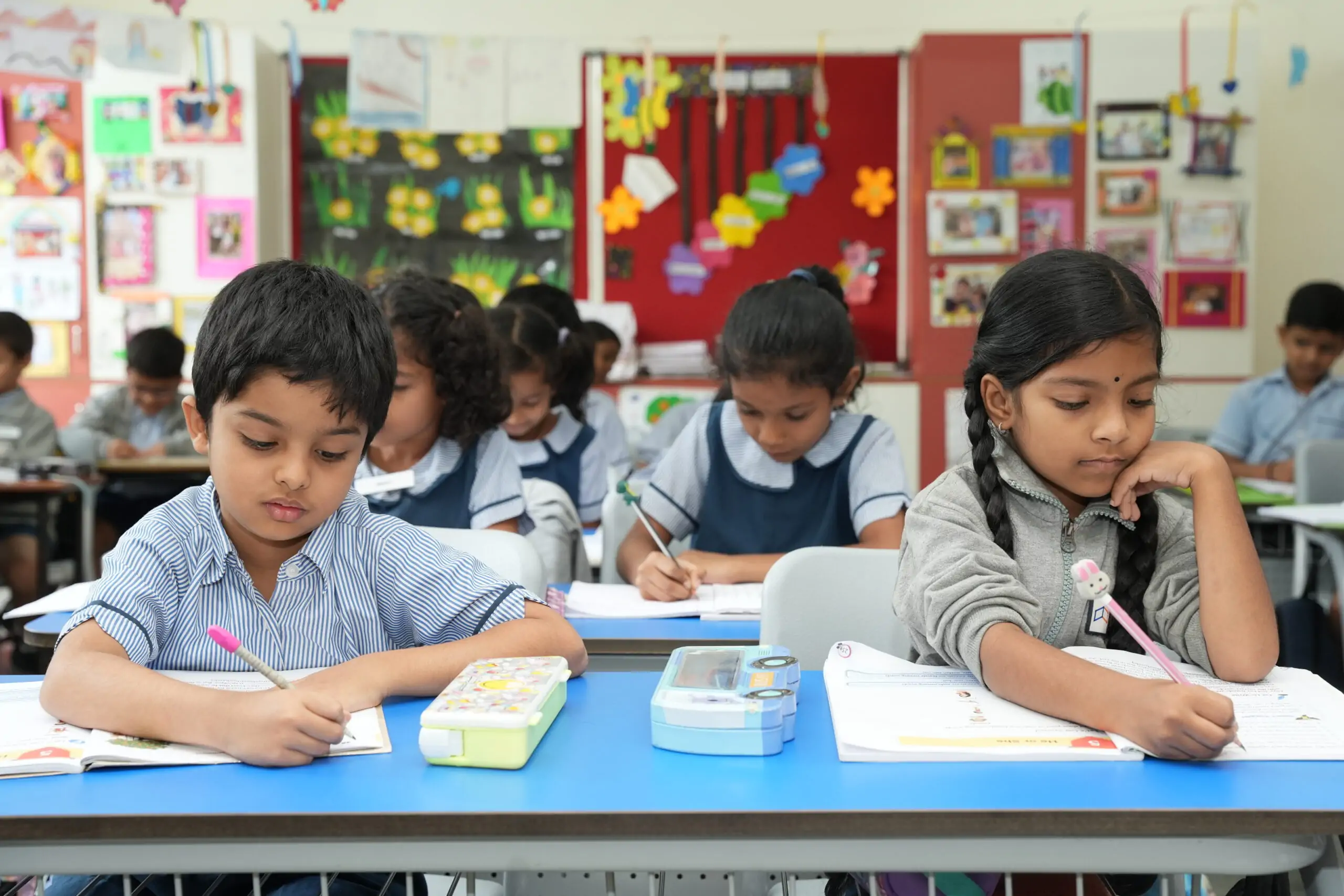Transitioning Between Academic Stages – A DIS Guide for Parents
Transitioning between academic stages can be a significant event for both children and parents. Each transition change involves various adjustments in learning, attitudes, perceptions, and skills as students move from one academic level to the next. These transitions occur throughout a student’s educational journey and can include moving from preschool to primary school, primary to middle school, and middle school to high school, or even changes within a school system, such as new teachers as they advance in their grades, or choosing different academic tracks.
Practical strategies, rooted in the understanding of adolescent and youth psychology, is your best bet to help your child transition seamlessly between levels of learning and maturity. In this DIS guide, our educators have listed out key factors in academic transition periods, all the way from preschool to high school, that can help you optimally guide your child during periods of change.
For Pre-Schoolers
This is the biggest early transition in a child’s life as they move away from a secure home environment into their first alien environment. It is but natural that children will present anxiety during this transition, and sometimes, parents go through separation anxiety as well. You would all have heard of stories of children clinging to their parents and refusing to let go, or parents anxiously waiting outside the gates for their child’s first day at school to end. Understanding this from a psychological standpoint, and using soothing and familiar techniques to shepherd the child into their first formal learning environment can go a long way in making this transition comfortable. Here are a few practical tips on how you can align with your child’s thinking for this important academic stage.
- Visit the School: Take your child to visit the kindergarten before the first day. Familiarity can ease anxiety.
- Establish Routine: Start bedtime and waking routines that align with school schedules a few weeks before school starts.
- Social Skills: Encourage playdates and group activities to help your child become comfortable with peers.
- Independence: Practice skills like using the restroom independently, dressing themselves, and following simple instructions.
(You may also like reading: https://docs.google.com/document/d/1HppTHkB8DQ3q0ob0TyPxMNmfjlpWOi_Y/edit?rtpof=true )
Primary and Middle School
By the time your child is ready for primary and middle school, they will have moved out of the home environment into a social environment where they will have developed a wider sense of the world, through their friends and teachers. Along with the basics of learning, children are equipped with communication skills to navigate the world. Their minds are now prepared for higher learning levels that become increasingly challenging as they move up the grade levels. Here is a list of things to keep in mind to prepare your child for primary and middle school at the Deccan International School.
- School Orientation: Attend orientation sessions to understand the school layout, rules, and expectations.
- Time Management: Help your child organise their time for homework, extracurricular activities, and relaxation.
- Encourage Independence: Let your child take responsibility for their schoolwork, including communicating with teachers when needed.
- Peer Pressure: Discuss how to handle peer pressure and make responsible decisions.
High School
High school is the crucial stepping stone to higher education, as also the early years of their professional progress. In this level, children will have shown their interests, passions, and skills, which, with careful planning, can help them make informed decisions about the next steps in their academic and early adult life. If your child is stepping into the A levels, here are the top considerations for you as a parent.
- Academic Planning: Understand graduation requirements and help your child choose appropriate courses.
- Extracurricular Activities: Encourage exploration of interests through clubs, sports, or volunteering.
- Career Exploration: Discuss future goals and how high school choices can impact college or career paths.
- Support System: Stay involved while respecting growing independence. Monitor progress and offer guidance as needed.
Beyond High School
It behoves us, as teachers and parents, to lay the strongest foundational framework for their decisions beyond the high school stage. These will involve the following, so do keep these in mind even if your child is still in the A levels.
- College Applications: Familiarise yourself and your child with the application process, deadlines, and financial aid options.
- Emotional Preparation: Acknowledge and discuss the emotions surrounding leaving home and adjusting to a new environment.
- Financial Literacy: Teach basics like budgeting and managing money responsibly.
- Communication: Maintain open communication and support your child’s decisions while offering guidance when needed.
General Tips
Whatever the academic stage, it pays to have a firm grip on the following.
- Listen: Pay attention to your child’s concerns and emotions throughout each transition.
- Stay Positive: Model resilience and adaptability to help your child approach change with confidence.
- Stay Informed: Keep in touch with teachers, counsellors, and other parents to stay updated on school activities and resources.
- Celebrate Milestones: Acknowledge achievements, both big and small, to boost your child’s confidence and motivation.
In Conclusion
By preparing yourself and your child for these transitions, you can help foster a positive and successful academic journey. Remember, each child is unique, so adjust your approach based on their individual needs and personality. At Deccan International School, we believe in partnering with every parent to ensure their child’s academic success.
Interested to know more about Deccan International School? Register Here




